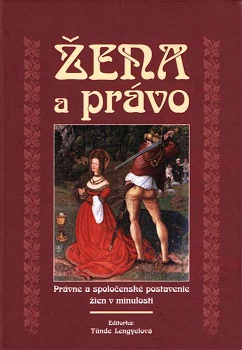Právne postavenie žien v Kluži v 16. storočí
Legal position of women in Cluj in the 16th century
Author(s): Enikő Rusz-Fogarasi
Subject(s): Gender Studies, History of Law, Civil Law, Culture and social structure , 16th Century
Published by: SAV - Slovenská akadémia vied - Historický ústav SAV
Keywords: Cluj; 16th century; women; legal status; law; property;
Summary/Abstract: The privilege granted to the town of Cluj in 1405 by the Hungarian king Sigismund was of great significance for its future development. Since the second half of the 15th century, the town used the law of Buda. The guild statutes regulated not only how artisans should perform their craft, but also other, private spheres of their lives. Guild and municipal statutes from the medieval period as well as the later ones form the 16th century concerned guild members who were, obviously, all men. However, in guild documents we can find some legal records that relate to women, especially in connection with the daughters and wives of late guild masters. At the first sight, it might seem that the guilds tried to protect lonely women in all the cases. Nevertheless, the guild statutes differed and sometimes a guild would change the clauses over the time. For example, at first a guild masters ' widow was allowed to take over her late husband's craft over some period of time (usually one year) or as long as she kept his family name. A woman living on her own could practice the craft only under the condition that the products met the standards of the guild. In Cluj, there was a custom, widespread in other municipal laws, according to which the wife’s and husband's possessions became their common property after the wedding. On the other hand, unlike in many municipal laws, where a husband and a wife got equal share, in Cluj, after the death of a partner the man got two thirds and the woman only one third of their common property. It is characteristic of the period that wives, daughters and widows did not have the same position as their male counterparts. Nonetheless, they had certain rights in the municipal law system, e.g. they could inherit their paternal family house, make their last wills, freely decide about their property and even practice the craft of their deceased husbands for a limited time. A woman could be involved in business and after her husband's death received one third of the jointly acquired property during the marriage. A widow paid the same taxes as the others, but if she married a noble or away from the town, she lost her municipal right of the house. The taxes were the same for women and men because it was a house or a piece of land that were taxed, not the owner.
Book: Žena a právo. Právne a spoločenské postavenie žien v minulosti
- Page Range: 118-125
- Page Count: 8
- Publication Year: 2004
- Language: Slovak
- Content File-PDF

